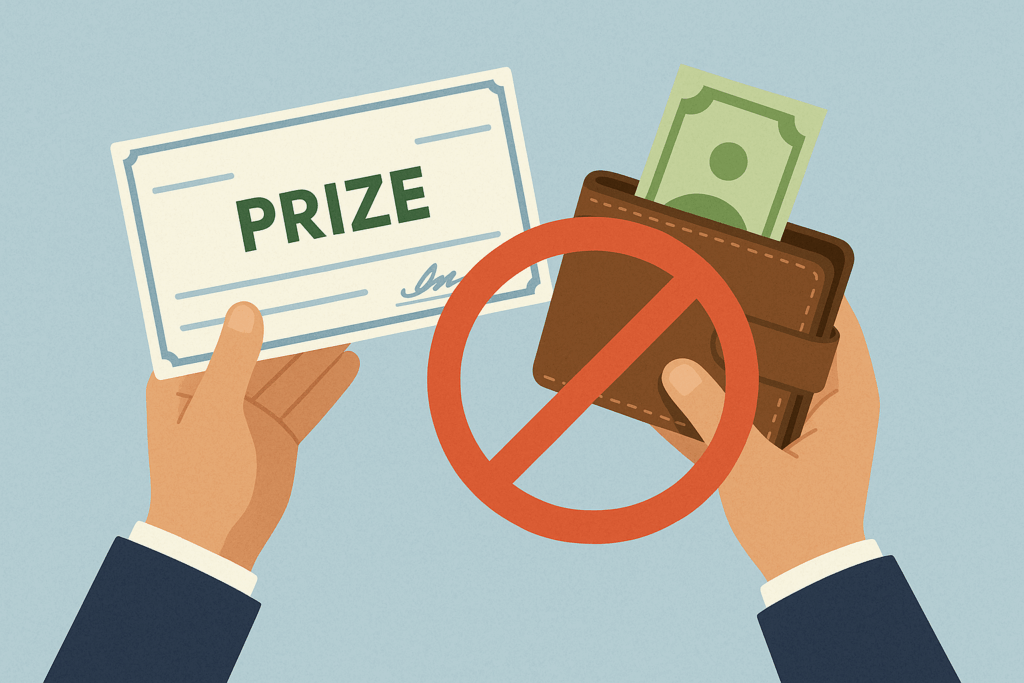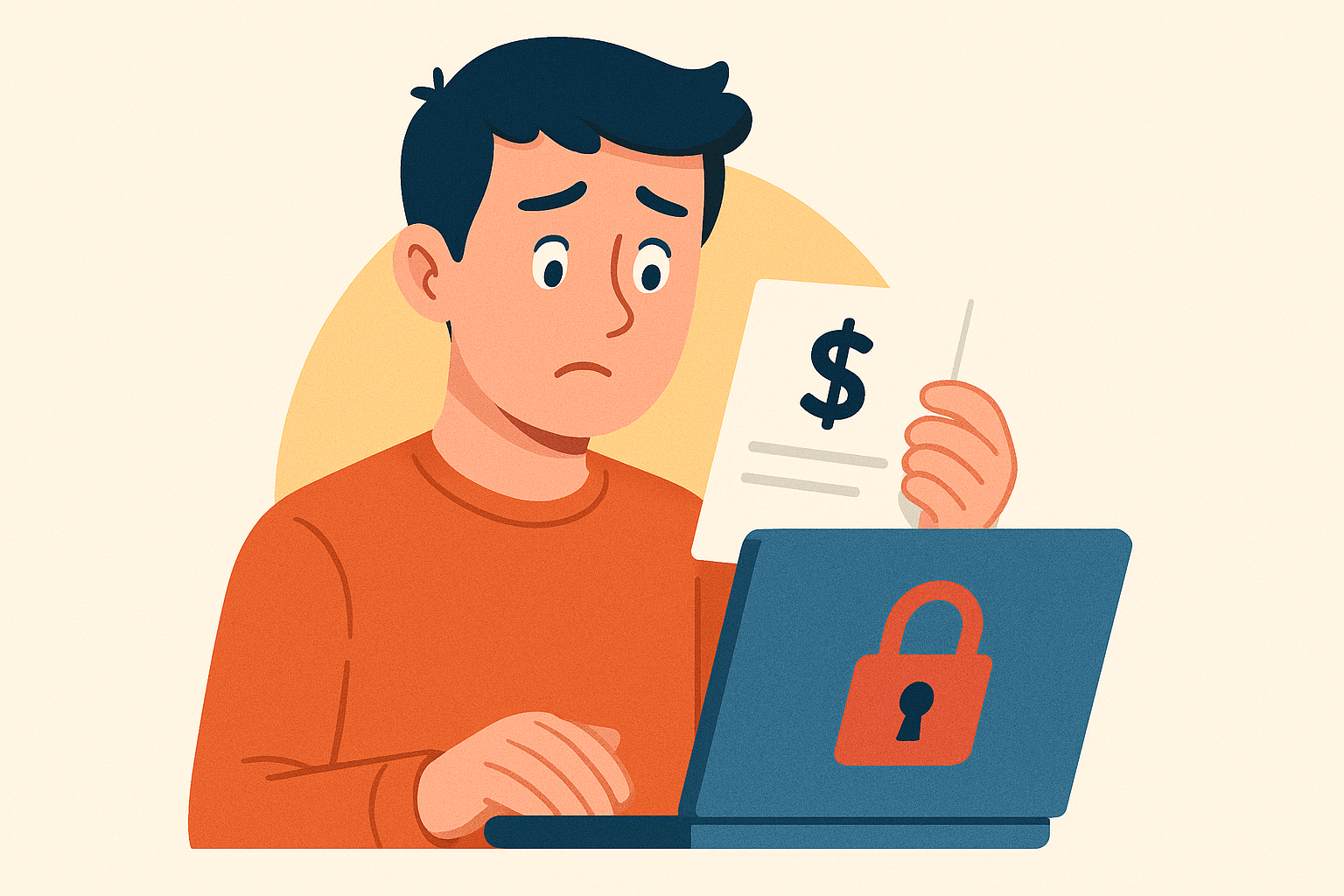Winning a sweepstakes is thrilling — but nothing spoils that excitement faster than realizing the prize was just bait for a scam. Fraudsters have grown more sophisticated, but so have the ways you can spot them. Use this guide to learn the most common warning signs of a fake sweepstakes, so you can protect your wallet and personal information.
They Ask You to Pay to Claim Your Prize

Legitimate sweepstakes never require winners to pay fees, taxes, or shipping charges upfront. If you’re told to wire money, buy gift cards, or pay handling fees to get your prize, it’s almost certainly a scam. Genuine contests deduct applicable taxes from the prize itself or provide instructions for legitimate tax reporting — they don’t ask you to prepay.
Suspicious Email Domains and Poor Communication
Watch out for messages coming from free email services like Gmail or Yahoo instead of official company domains. Even if an email uses the company’s name in the address, inspect it carefully — small misspellings are a common trick. Sloppy grammar, generic greetings like “Dear Winner,” and vague prize details are all additional red flags.
High-Pressure or Too-Good-To-Be-True Language

Scammers want you to act fast so you don’t have time to think. Be wary of emails or calls claiming you must “act immediately” or risk losing your prize. Over-the-top promises, like winning a luxury car in a contest you never entered, should also set off alarms. Take a moment to pause and verify before sharing any details.
They Request Sensitive Information

No real sweepstakes will ask for your Social Security number, bank account login, or credit card number just to claim a prize. Providing these details can lead to identity theft or unauthorized transactions. A reputable sponsor might need your address to mail your prize, but they won’t demand financial credentials.
You Can’t Find Any Proof of Legitimacy

Before engaging with any sweepstakes notification, search online for the company and the contest name plus words like “scam” or “reviews.” Check the official website for a winners list or press releases. If there’s no trace of the contest elsewhere, or if other people report it as a scam, steer clear.



